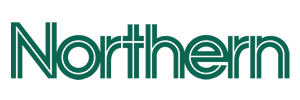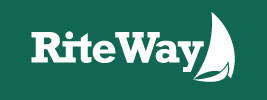Applying for Qualified Donee Status with Canada Revenue Agency
Why Apply?
By federal law, Canadian foundations such as the Healthy Horizons Foundation are only permitted to make grants to qualified donees. A qualified donee can be a registered charity, but it can also be a "public body performing a function of government.” Many Indigenous communities and organizations fit this definition.
Previously, there was no need to apply for qualified donee status, but the rules have changed. If your Indigenous community or organization wants qualified donee status, you need to apply to the Canada Revenue Agency (CRA).
Donee status is worthwhile as it opens the opportunity to receive grants from foundations like Healthy Horizons and other registered charities. Qualified donees can also issue official donation receipts for gifts they receive from individuals or corporations. Finally, a qualified donee is tax exempt under the Income Tax Act. The Canada Revenue Agency has a list of qualified donees on its website that donors and registered charities can check to verify whether an Indigenous group is a qualified donee.
Registering as a qualified donee does not mean that you become a charity. Although there are requirements to retain records related to tax receipts issued, other rules that charities must follow do not apply to qualified donees.
If you have not yet done so, we encourage you to take the steps below to register as a qualified donee.
Application Process
To apply for registration as a qualified donee, a representative of your organization should send a letter stating your intent to apply and explaining how your organization meets the requirements for a public body performing a function of government in Canada. A sample letter for your application to Canada Revenue Agency (CRA) can be found at the bottom of this page.
The letter needs to be signed by at least one representative of your organization and be accompanied by:
- A complete list of the people in your organization responsible for governance or decision making. This can include Chief, Board of Directors or Governing Council. Each organization has a different structure; CRA is interested in understanding who the decision makers are.
- The address where your organization's financial books and legal records are kept. A post office box or rural route number alone is not enough.
The letter and supporting documentation should be sent to CRA’s Charities Directorate at:
Charities Directorate
Canada Revenue Agency
Ottawa ON K1A 0L5
The criteria and a detailed description of the supporting documentation required can be found at: http://www.cra-arc.gc.ca/chrts-gvng/qlfd-dns/mncplpblcbds-ltr-eng.html.
Best practices when applying for registration
- Ensure the application provides all information described in the criteria and includes supporting documentation (e.g., copies of contribution funding agreements, financial statements, copies of by-laws passed and enforced, other proof of services provided).
- The application should include a clear description of the services provided and of where your organization received the authority/responsibility to provide these services. More than one organization cannot claim responsibility for the same service in the same geographic area.
- Be clear who you want CRA to communicate with. It is important to ensure that the person that CRA is asked to communicate with, has the authority to do so. Be clear in the correspondence who that person is. Your letter should identify the one or two people who can represent the organization on your behalf, or your organization could complete a CRA form (RC59), which confirms the identity of your authorized representative.
- Also ensure that that contact person is someone that can be reached by phone, fax and/or mail, is aware of the application and can provide any additional information required.
Obligations of a qualified donee under the Income Tax Act
- If your organization obtains qualified donee status it will have to meet certain obligations, relating to the fact your organization is able to receive grants and gifts and issue tax receipts. These obligations are:
- Your organization must continue to be a municipality or public body performing a function of government. Keep adequate books and records at the Canadian address that your organization has on file with the CRA containing:
- Information to allow the CRA to verify amounts that donors can claim for tax credits or deductions.
- Information to allow the CRA to confirm that your organization meets the requirements for qualified donee status under the Income Tax Act.
- A duplicate of each official donation receipt issued, containing the required information for the gift received.
- Your organization must continue to be a municipality or public body performing a function of government. Keep adequate books and records at the Canadian address that your organization has on file with the CRA containing:
These Books and records must be made available to the CRA on request.
Who Can Qualify?
CRA generally accepts organizations that have similar characteristics to a municipality, or that otherwise have a governance role or purpose within a geographic area. In the Aboriginal context, this typically includes:
- An Indian band or other Aboriginal government can typically demonstrate that it is a municipal or public body performing a function of government by demonstrating that:
- Other Aboriginal governments with election procedures.
An Indian band or other Aboriginal government can typically demonstrate that it is a municipal or public body performing a function of government by demonstrating that:
- It enacts and enforces laws or by-laws or rules which all citizens or members must follow (e.g., Indian Band has passed by-laws under both sections 81 and 83 of the Indian Act).
- It imposes and collects taxes.
- It is negotiating and implementing a treaty or self-government agreement with the Crown (e.g., a federal, provincial or territorial government), and continued administration of the agreement.
- It is responsible for and providing provincial-type services and/or a range of municipal-type government services.
Sample Letter to Canada Revenue Agency
Download a sample letter which you can use on your organizations letterhead to submit to the CRA. Your information will need to be filled out in the fields provided on the form.






